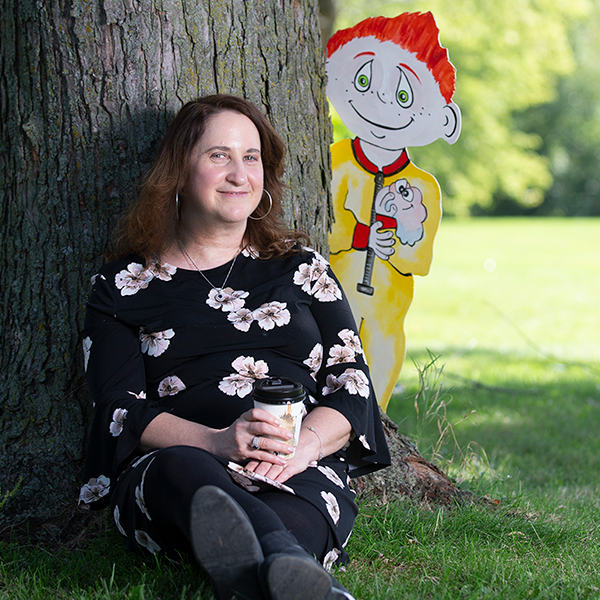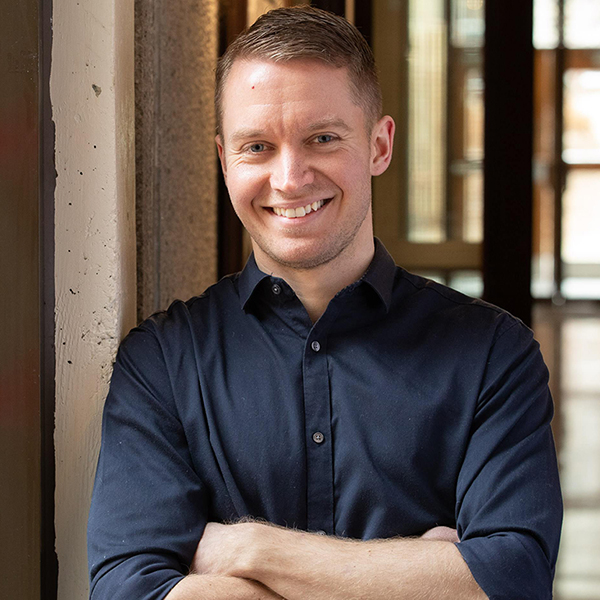For most, the early years of adulthood come with a daunting set of new challenges; navigating big moves for school or work, learning the ins and outs of money management, and the overall pressure associated with finding one’s place in the world. Amidst all that uncertainty, creating and maintaining meaningful friendships can be significantly more complicated than during childhood, when a simple “hello” on the playground is often a successful starting point for gaining a new buddy.
Therapist Miriam Kirmayer, BA’10, a doctoral student in clinical psychology, understands the difficulty. She has spent the better part of a decade researching the nuances of adult friendships, primarily in young adults between the ages of 18 and 25, and has dedicated her career to sharing what she knows in the hope of making this transformative period a little less lonely for others.
Kirmayer says that her interest in adulthood friendships was largely sparked after noticing there was a gap in the existing research on the subject when it came to the 18-25 age range. While researchers have long focused their studies on children and adolescents when it comes to observing the way friendships are formed and nurtured, older individuals were often overlooked, despite the unique challenges they face.
“We know that friendships undergo really drastic changes during this period of life, where people are moving away from home, leaving behind their childhood friends, and are tasked with making new connections,” says Kirmayer, “but we really don’t know a lot about how to help people make friends and keep friends during this time.”
Though it can be easy to take our interpersonal relationships for granted, their importance is hard to overstate. Kirmayer says that existing studies offer ample evidence that friendships are vital to feeling supported both emotionally and practically, as well as to mental health and general well-being, especially during transition periods.
As it turns out, Montreal provides an ideal landscape for her work. The city plays host to more than 155,000 university students a year, so potential age-appropriate subjects for her research are plentiful. To find participants, she has partnered with McGill residences, where many first-year students face the struggles of changing cities or continents and attempting to make lasting contacts in an entirely new environment.
Kirmayer notes that many native Montrealers end up staying in the city long-term, which can make forging connections for outsiders an even more daunting task. “Once you feel like everyone already has their established social network, and you’re here having to make friends and navigate that, it can be even more difficult.”
Along with dorm residents, Kirmayer has also worked with the residence supervisors, or floor fellows, who are tasked with overseeing them. “In addition to collaborating on the research end, I was involved in creating and leading workshops for dorm supervisors to help them better support fellow students and mediate interpersonal conflicts that come up,” Kirmayer says.
Kirmayer has gone on to share her knowledge more widely. She is frequently quoted in the media (she has recently been interviewed by The Today Show, The New York Times and Cosmopolitan), and is a contributing writer and blogger for Psychology Today.
Her research (Kirmayer’s supervisor is associate professor of psychology Melanie Dirks) has also led her to examine the effects of technology and social media on friendships in an inescapably digital world. She notes that while communication is now easier than ever, meaningful communication is at a serious risk of diminishing when contact is maintained primarily through a screen.
Texting can be helpful in the early stages of a new friendship, she says, “to get a little bit of that momentum with someone you think you might be interested in befriending,” but an over-reliance on technology can create problems that don’t happen as often in person. “We miss some of the nuances, so there can be more opportunity for miscommunications and conflicts when we’re only exchanging information or chatting online,” Kirmayer says. “It’s not a replacement for face-to-face, real life interaction.”
She also cautions that social media can contribute to feelings of isolation and exclusion; getting left out of group chats, being tagged in unflattering photos, and the ability to count the number of “friends” you have online can all lead to insecurities and new obstacles for relationships.
Through all of the challenges, technological or otherwise, Kirmayer has plenty of tips for maintaining and creating friendships in adulthood. She notes the value in staying in touch with childhood friends, even when life pulls you in different directions. “It’s important to have a friend that you can turn to for emotional support and practical support, especially during that transition period,” she says.
Whether it’s with a longtime friend or a new connection, Kirmayer’s next piece of advice is to communicate frequently and openly. “It’s important to communicate with our friends, but it’s also important to share when we’re not in a place where we can communicate … letting a friend know when you’re busy shows them that you’re committed to maintaining your friendship and that they’re a priority for you.”
Though it’s not always easy, Kirmayer emphasizes that successful friendships are built on consistent, active effort. Checking up regularly and looking for new opportunities to connect are key to showing friends that you’re committed to them. “When it comes to maintaining our friendships, it’s a matter of investing and prioritizing them, just like we do everything else in our lives.”
For more information on Miriam Kirmayer’s work, visit miriamkirmayer.com


